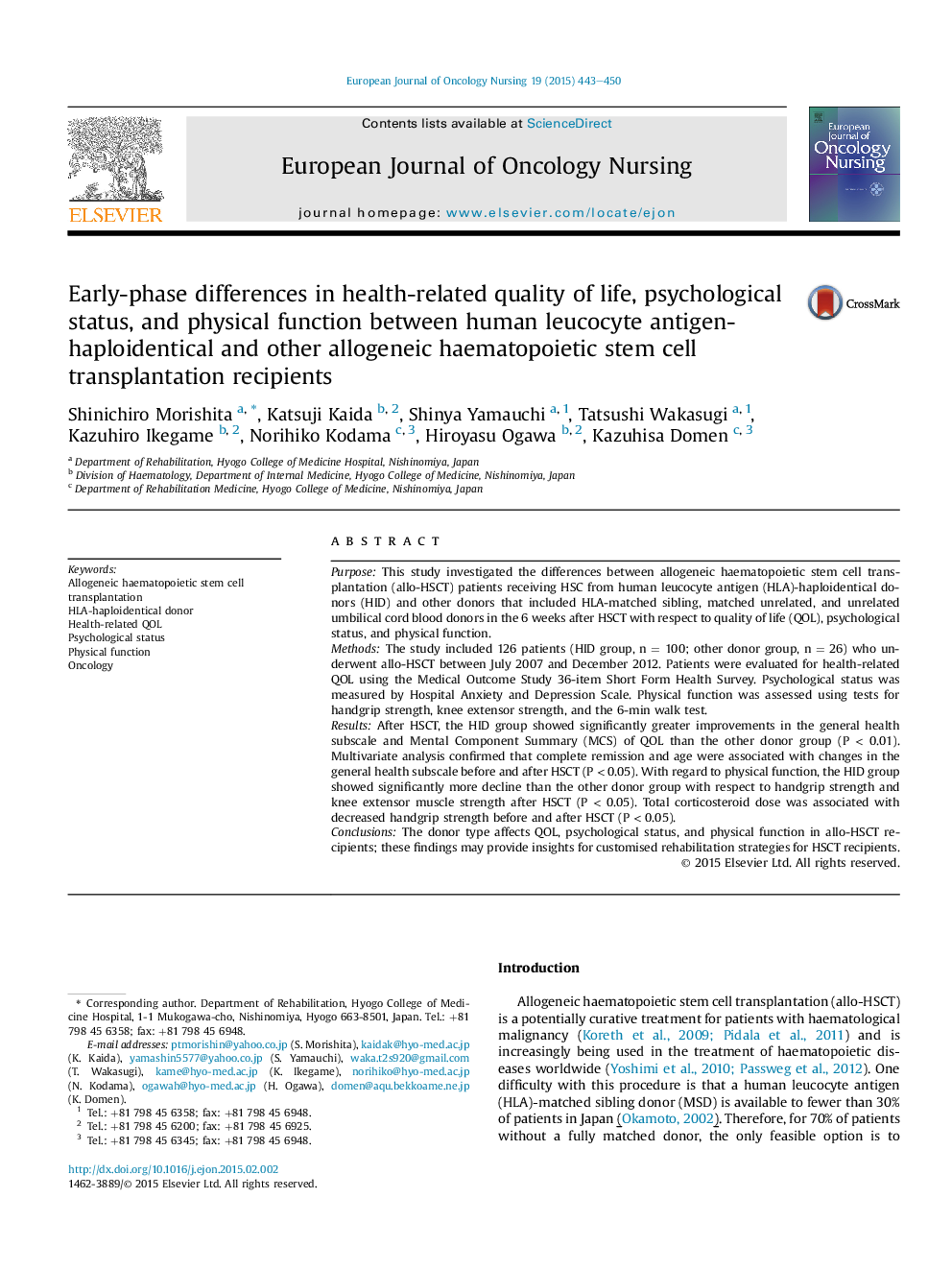| Article ID | Journal | Published Year | Pages | File Type |
|---|---|---|---|---|
| 2647524 | European Journal of Oncology Nursing | 2015 | 8 Pages |
PurposeThis study investigated the differences between allogeneic haematopoietic stem cell transplantation (allo-HSCT) patients receiving HSC from human leucocyte antigen (HLA)-haploidentical donors (HID) and other donors that included HLA-matched sibling, matched unrelated, and unrelated umbilical cord blood donors in the 6 weeks after HSCT with respect to quality of life (QOL), psychological status, and physical function.MethodsThe study included 126 patients (HID group, n = 100; other donor group, n = 26) who underwent allo-HSCT between July 2007 and December 2012. Patients were evaluated for health-related QOL using the Medical Outcome Study 36-item Short Form Health Survey. Psychological status was measured by Hospital Anxiety and Depression Scale. Physical function was assessed using tests for handgrip strength, knee extensor strength, and the 6-min walk test.ResultsAfter HSCT, the HID group showed significantly greater improvements in the general health subscale and Mental Component Summary (MCS) of QOL than the other donor group (P < 0.01). Multivariate analysis confirmed that complete remission and age were associated with changes in the general health subscale before and after HSCT (P < 0.05). With regard to physical function, the HID group showed significantly more decline than the other donor group with respect to handgrip strength and knee extensor muscle strength after HSCT (P < 0.05). Total corticosteroid dose was associated with decreased handgrip strength before and after HSCT (P < 0.05).ConclusionsThe donor type affects QOL, psychological status, and physical function in allo-HSCT recipients; these findings may provide insights for customised rehabilitation strategies for HSCT recipients.
